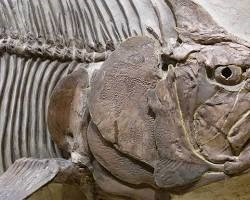Over the last few weeks I have seen several social media posts from apparently well-meaning Christians beginning with the words “Scientists can’t explain …”
Usually the posts claim that some feature of natural history cannot be accounted for by evolutionary biology. On closer inspection, these posts inevitably turn out to mean, not that scientists can’t explain x, y or z, but that the person posting can’t imagine an explanation, assumes one doesn’t exist, and hasn’t actually asked any scientists.
It is perfectly fine, of course, to claim that your religion requires you to believe certain things. Not so fine, and certainly not a witness to truth, if the things it requires you to believe are clearly contrary to reality. But even that is understandable as long as you don’t go on to claim that doctors, scientists and other researchers are evil and corrupt because they don’t see things your way.
Also not fine is claiming that the “science” done by members of your religious group is the real non-corrupt, objective science, because it conforms to the Bible, or some other religious text. Whatever you think your religion tells you, the earth does not rest on a turtle’s back, the earth is not flat, the rest of the universe does not revolve around it, and it is not 6,000 years old.
Sometimes people who make these claims insist that they do so on the basis of Scripture, and that those who disagree with them are anti-Bible. There are a number of issues with this.
Firstly, as I noted above, it is fine to believe something because you think your religion requires you to. But trying to find evidence to support views you already hold is not science. Science is open-ended. In science, the evidence comes first, and belief is based on the evidence, and is always open to change. In Biblical or other kinds of fundamentalism, the belief comes first, and then evidence is gathered to support the belief. That is not science.
Second, when people who do this claim to be “trusting the Bible,” or “defending the Scriptures,” they are really doing nothing of the sort. They are defending their way of reading the Scriptures, or their pastor’s, or the sub-group of Christianity they belong to. In particular, they read the Bible as if it was their word, not God’s, and as if God was required to communicate through the methods and styles of writing common to our culture and no others.
In Christian fundamentalism, this generally takes the form of ignoring the almost universal use of story-telling as a way of conveying important truths. You would think this would be obvious to Christians, since Jesus did precisely this when he spoke to His followers in parables. In the late-twentieth century and contemporary West, we rely more on direct instruction, to the point where we regard any other method of teaching as odd, or as not actually teaching at all. But telling stories to teach truths is often very effective. I remember my mother telling me the story of the boy who cried wolf. This impressed upon me the fact that if you lie regularly, eventually people will not believe you when you tell the truth, and did so in a much more powerful and memorable way than if she had simply told me that telling fibs was bad.
Another issue fundamentalists have is that they do not understand differences in forms of expression and figures of speech. When we read that Jesus said of Herod “Go and tell that fox” we know immediately, and without having to be told, that Jesus was describing Herod’s character, not claiming that Herod was in fact a small furry carnivorous mammal with a bushy tail. We know this because we recognise His words as metaphor, a common figure of speech in English, and one we share with some ancient cultures. Other examples you might have heard include she is an angel, the world is a stage, he has a heart of gold. We know without even thinking whoever says this is not suggesting that anyone’s heart really is made of gold. But what if we did not use or know of metaphor?
In that case, some people might say “Well, that’s just silly. We know from history that Herod was a human being, and in any case, animals of any sort do not run human societies. This proves the Bible is full of fairy tales and can be safely ignored.” Others, like people who claim the Earth is flat, or that it is 6,000 years old, might say “I don’t care what lying science and history say. The Bible says Herod was a fox, so he was a fox. God said it, I believe it, that settles it.”
But hopefully there would be others who looked closely at the languages and cultures of the Bible, and noted that this kind of expression was often used as a kind of comparison, and did not imply that Herod was really a small furry animal, or that someone’s heart was actually made of gold. Sadly, it is also likely that these people would then be accused by others of denying the power of Scripture, and being anti-Bible.
Is this a new way of reading the Bible? Not at all. Through most of history the Church has been careful to try to understand Scripture as the word of God, not simply to be interpreted in the ways that are easiest or most obvious to us, but taking careful note of differences in language and culture, so that we are not blinded by our own narrow perceptions and background.
Origen of Alexandria (185-232), writing about heretics who arrive at their own interpretations of Scripture which vary from the teaching handed down by the Apostles, says:
“Now the reason of the erroneous apprehension of all these points on the part of those whom we have mentioned above, is no other than this, that holy Scripture is not understood by them according to its spiritual, but according to its literal meaning….
Nor was it only with regard to those Scriptures which were composed down to the advent of Christ that the Holy Spirit thus dealt; but as being one and the same Spirit, and proceeding from one God, He dealt in the same way with the evangelists and apostles. For even those narratives which He inspired them to write were not composed without the aid of that wisdom of His, the nature of which we have above explained. Whence also in them were intermingled not a few things by which, the historical order of the narrative being interrupted and broken up, the attention of the reader might be recalled, by the impossibility of the case, to an examination of the inner meaning. But, that our meaning may be ascertained by the facts themselves, let us examine the passages of Scripture. Now who is there, pray, possessed of understanding, that will regard the statement as appropriate, that the first day, and the second, and the third, in which also both evening and morning are mentioned, existed without sun, and moon, and stars — the first day even without a sky? And who is found so ignorant as to suppose that God, as if He had been a husbandman, planted trees in paradise, in Eden towards the east, and a tree of life in it, i.e., a visible and palpable tree of wood, so that anyone eating of it with bodily teeth should obtain life, and, eating again of another tree, should come to the knowledge of good and evil? No one, I think, can doubt that the statement that God walked in the afternoon in paradise, and that Adam lay hid under a tree, is related figuratively in Scripture, that some mystical meaning may be indicated by it. The departure of Cain from the presence of the Lord will manifestly cause a careful reader to inquire what is the presence of God, and how anyone can go out from it. But not to extend the task which we have before us beyond its due limits, it is very easy for anyone who pleases to gather out of holy Scripture what is recorded indeed as having been done, but what nevertheless cannot be believed as having reasonably and appropriately occurred according to the historical account.”
In other words, while holding to a strong view of the truth and inspiration of Scripture, Origen says that we must be careful of imposing literal meanings on texts whose primary meaning is allegorical, whose truth and power are conveyed in story-telling. Origen goes so far as to say that God permitted things to be written in the Scriptures which appear contradictory, or are counter to what we know of the world, in order to pull us up and make us think more deeply, and not simply to take our first or easy impressions for granted.
Augustine of Hippo (354 to 430), explained why this was so important in a dissertation about the days of creation, which he recognised could not have been literal days: “Usually, even a non-Christian knows something about the earth, the heavens, and the other elements of this world, about the motion and orbit of the stars and even their size and relative positions, about the predictable eclipses of the sun and moon, the cycles of the years and the seasons, about the kinds of animals, shrubs, stones, and so forth, and this knowledge he holds to as being certain from reason and experience. Now, it is a disgraceful and dangerous thing for an infidel to hear a Christian, presumably giving the meaning of Holy Scripture, talking nonsense on these topics; and we should take all means to prevent such an embarrassing situation, in which people show up vast ignorance in a Christian and laugh it to scorn. The shame is not so much that an ignorant individual is derided, but that people outside the household of the faith think our sacred writers held such opinions, and, to the great loss of those for whose salvation we toil, the writers of our Scripture are criticized and rejected as unlearned men.
If they find a Christian mistaken in a field which they themselves know well and hear him maintaining his foolish opinions about our books, how are they going to believe those books in matters concerning the resurrection of the dead, the hope of eternal life, and the kingdom of heaven, when they think their pages are full of falsehoods on facts which they themselves have learnt from experience and the light of reason?”
Augustine, who is regarded by Protestants, Catholics and the Orthodox family of churches as one Christianity’s great teachers, had the same reason for concern about literal interpretations as I do. That is, they make Christians and the Christian faith look either stupid or dishonest because they are not based in sound and careful reading of the Bible, and ignore or distort what we know about the world.
Let’s look at a couple of examples.
First, the claim that all fossils were laid down on Noah’s flood. This floats around Facebook with frustrating regularity. There is no basis in science or reality for this claim. Fossils can be formed in a variety of ways. For example:
Permineralisation: This common type of fossil preservation occurs when minerals dissolved in groundwater seep into the spaces within the organism’s remains. Over time, these minerals crystallise and form a rock-like copy of the original organism. This process often preserves hard tissues like wood, bones, teeth, and shells.

Moulds and Casts: When an organism is buried in sediment, its remains may completely dissolve over time, leaving behind a hollow space in the rock called a mould. If this mould is later filled with minerals or sediment, it can create a cast, a replica of the original organism’s shape.

Carbonisation: This process occurs when an organism is buried and subjected to pressure and heat, tissues to break down and release gases, leaving behind a thin film of carbon. This process often preserves soft tissues like leaves and insects.

Unaltered Preservation: In rare cases, organisms can be preserved in their original state with little or no alteration. This can happen if they are trapped in amber, tar pits, or ice, which prevent decomposition.

Of course, fossils can be formed in flash floods, which deposit layers of sediment on top of rapidly killed plants and animals. But does the fact that such fossils occur around the world prove there was a single, massive, world-wide flood? Not at all. Humans and animals live in higher numbers near sources of water; oceans, rivers, and lakes. Wherever there are sources of water, there are also floods, especially on large flood plains like those of Mesopotamia. This accounts for widespread flood-related fossilisation, and for widespread stories of floods. There is no geological evidence for a single, massive flood which occurred 6,000 years ago and which covered the entire Earth. You can read more about this in this article on the National Center for Science Education website.
Another claim sometimes made by young-earth creationists is that some creatures, or some aspects of their body shape or function, are so complex that they could not have evolved in the time available. Usually this takes the form of suggesting that a function could not work unless a number of features were in place, that the individual parts serve no purpose or have no function on their own, and that they could not all have suddenly appeared via mutation at the same time. Some such features are alleged to be the human eye, the genitals of the male sperm whale, and the flagella or tails that are found in some plant and animal sperm cells and in multiple types of micro-organisms including Helicobacter pylori, the bacteria that causes stomach ulcers.
Another such claim that has recently circulated on social media is that bombardier beetles could not possibly have evolved because their defence mechanism is an example of “irreducible complexity.” Bombardier beetles’ defences consist of spraying from separate glands two sets of chemicals which combine with each other and react to form a hot, irritating jet which can be squirted at predators. You can see how this is used at about 1:25 in this video:
Like many claims by young-earth creationists (people who believe the world is no more than about 10,000 years old) this one begins with the words “Evolutionists can’t explain…” As usual, this simply means they haven’t asked any.
One of the bombardier beetle’s glands contains hydroquinone and hydrogen peroxide. Hydrogen peroxide (sometimes used as hair bleach or in mouth rinses) is a normal metabolic by-product in insects, and various quinones are used to keep insects’ chitin in good condition. These are common to almost all beetles. Many types of beetles have developed a second gland. Duplication of an existing feature is a very common form of mutation, so there is nothing unusual about this. The chemicals stored in those second glands have changed over time so that many can be used as a deterrent to predators. Some beetles, stink bugs for example, can squirt those smelly or irritating chemicals at any perceived threat. It is only a tiny step from there to the chemicals found in the bombardier beetle’s second gland, catalysing enzymes which when mixed with hydrogen peroxide and hydroquinone cause a violent exothermic reaction which creates the hot irritating mixture sprayed at approaching predators.
Young-earth creationists claim that the bombardier beetle’s defence system is irreducibly complex because each component is useless on its own and therefore it could only have been created as a complete system. As we have seen, this claim is false. Each component is present in multiple other beetle species, and is useful in its own right. Various combinations of those components occur in other beetles, such as stink beetles. Other creationist claims of irreducible complexity show similar faults; ignorance of related species, of genetics, of how evolution works, or simple rejection of facts which do not fit what they believe to be the Bible world view (a process described by Australian geologist Ian Plimer as “telling lies for God”).
The problem here is not science. Nor is it scientists. No matter what you read on social media, most scientists are people of integrity. Many of them are Christian. Many also belong to other religious groups; Judaism, Shinto, Hinduism, for example. They do not have an agenda to “impose the Darwinist theory.” Nor is the problem mainstream Christians, who know they have nothing to fear from truth, no matter where it is found, and are happy to let science be science. The problem is a tiny group of fundamentalist Christians, a few of whom also happen to have degrees in science, but for whom faith in the Bible, actually faith in their own narrow reading of the Bible, determines their view of everything else.
The tragedy is that fundamentalists’ belief they are standing up for the Bible is entirely mistaken. They are standing up for a minority and very peculiar way of reading the Bible. And perhaps even worse, their commitment to this way of reading the Bible seems to be taken as permission to misrepresent science. Perhaps it is just self-deception. They believe the Bible says X, so X must be the case, regardless of observable reality. But either way it is deception, and deception can never serve the Kingdom of God. As St Augustine noted 1500 years ago, the result is that people come to believe that Christians are stupid or dishonest, or both. Young earth creationism is the very opposite of evangelism.



Leave a Reply